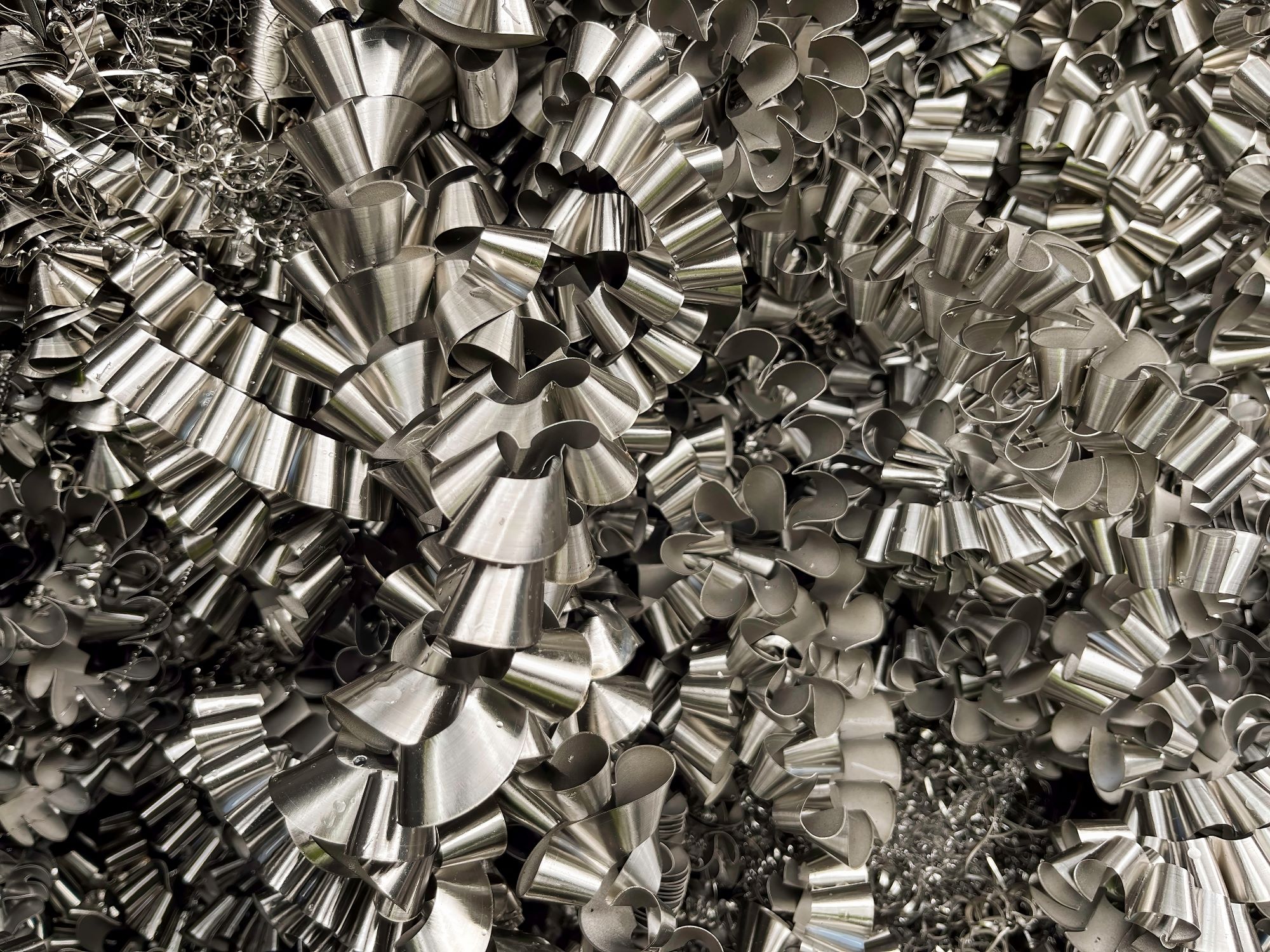ISO 9001:2015 Certified by ABS-QE
Cage Code: 53569 | Duns #: 061836920 | NACIS: 332710
Extreme heat, excessive pressure, and corrosive environments call for a superior superalloy that can withstand the harshest conditions. Where steel and titanium would falter or degrade, Inconel stands out with a unique crystalline structure and mixture of symbiotic elements that enhance overall hardness, resist deformation at high heat, and shield against corrosion by creating a protective oxide layer when exposed to oxygen.

Inconel is a resilient nickel-chromium-based superalloy that offers exceptional strength, stability at high temperatures, and unrivaled corrosion resistance. Where other materials fail when exposed to extreme heat or high-pressure environments, Iconel’s superior mechanical properties have expanded the possibilities for a variety of industries that require unrivaled component stability in the face of demanding conditions.
To further accommodate highly demanding project parameters, there are several Inconel alloy variants, such as Inconel 625, Inconel 718, and Inconel 600, which boast tailored compositions for added strength, corrosion resistance, or higher heat capacity.
Not sure which superalloy composition is best for your Inconel machining project? Our precision grinding, milling, turning, and drilling processes are powered by professional recommendations to help you secure the strongest and most compatible parts possible.
To match Inconel’s notable mechanical strength and toughness, only the finest cutting tools are capable of machining this highly resilient material. Fortunately, our machine shop is well-equipped to manage Inconel in all its forms. Cer-Mac’s specialized machinists support Inconel machining projects that require:
Using carbide or ceramic tools, milling can be used to shape and finish a wide variety of custom Inconel parts with precision consistency
With carbide/cobalt drills, we can safely bore holes in Inconel components while reducing any unintended amount of springing.
Using an abrasive wheel and coolant, we can finish an array of parts with incredibly tight tolerances and unparalleled flatness.
We shape cylindrical parts using carbide turning tools with high cutting speeds for smooth, accurate, and ready-to-use parts.
Regardless of the machining method, specialized cutting tools that offer superior wear and heat resistance are necessary. To withstand the extreme forces and cutting temperatures generated during Inconel machining, specially coated carbide and cobalt tools help reduce heat accumulation and the risk of overall tool damage.
Interested in our services?
Contact us for more information
Inconel and Invar machining is challenging for several reasons. As you can imagine, ultra-strong superalloys that are designed to withstand extreme heat and pressure can also withstand a high level of physical force before the structure deforms. Unlike softer metals that can be easily manipulated, machining Inconel requires a high level of caution to prevent tool damage, excessive heat generation, and to reduce work hardening.
In addition to Inconel’s high rate of work hardening due to its unique structural composition, Inconel machining is further complicated by the superalloy’s low thermal conductivity. In other words, unlike other metals that absorb and dissipate heat at a high rate during the cutting process, a superalloy like Inconel repels the heat energy, meaning the cutting tools
are exposed to higher temperatures and significant thermal stress. This resistance to heat dissipation can lead to rapid tool wear and eventually larger machine repairs.
Despite these challenges, our machinists and specialized Inconel machining equipment is up to the challenge. To reduce tool wear and minimize heat-related issues, we utilize advanced carbide cutting tools, proper tool coatings, and high-pressure coolant/lubrication to keep the workpiece clean and cool throughout the project. Furthermore, to manage defect-free shaping, we calibrate our feed rates in combination with shallow and several material cuts to enhance part quality, protect the tools, and reduce workpiece nonconformities.
Inconel machining is integral to the oil, gas, and other chemical processing industries due to the prevalence of corrosive chemicals, high heat, and extreme pressures in these fields.
Specifically, Inconel machining is utilized to develop components for:
Refineries, oil rigs, and many other oil-related operations rely on turbines and similar devices that can withstand constant exposure to high heat and corrosive chemicals without structural deformation.
From larger structural components on an oil rig to the very finite components utilized in underground gas exploration projects, Inconel’s strength and corrosion resistance are crucial for machined parts that are exposed to extreme underwater pressures and the corrosive nature of salty seawater.
Caustic chemicals and harsh environmental conditions quickly degrade inferior materials; Inconel is reliable for pipeline components, storage vessels, and other vital parts such as valves, flanges, and connectors involved in oil storage and transport operations.
Downhole operations related to oil extraction and site preparation require drilling and extraction components that can handle high friction, caustic chemicals, and excessive pressures with predictable stability. Inconel is the perfect superalloy for many oil jobs.

Have a part request or questions about Inconel machining? We encourage you to get in touch with our experts at Cer-Mac to learn more about Inconel machining and the many ways we can optimize your processes with superior component design.
© Copyright 2023 – Cer-Mac Inc: CNC Machining Specialists